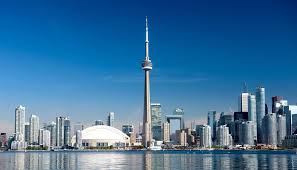
Table of Contents
Embarking on a career in real estate in Canada offers a promising opportunity to work in a dynamic and rewarding industry. To begin this exciting journey, obtaining a real estate license is the first and most crucial step. This comprehensive guide will walk you through the essential steps and requirements to become a licensed real estate professional in Canada.
What is a Real Estate License in Canada?
A real estate license is a mandatory credential that permits individuals to legally act as real estate agents, brokers, or salespersons in Canada. This license is regulated by provincial authorities, ensuring that real estate professionals adhere to industry standards and operate ethically.
Understand Provincial Requirements
In Canada, each province has its own governing body for real estate, and licensing requirements vary across the country. Here are some of the major provincial regulatory bodies:
- Ontario: Real Estate Council of Ontario (RECO)
- British Columbia: British Columbia Financial Services Authority (BCFSA)
- Alberta: Real Estate Council of Alberta (RECA)
- Quebec: Organisme d’autoréglementation du courtage immobilier du Québec (OACIQ)
- Manitoba: Manitoba Securities Commission (MSC)
Start by identifying the regulatory body in your province to determine the specific licensing requirements.
Meet Basic Eligibility Criteria
Before enrolling in any real estate program, ensure that you meet the basic eligibility criteria, which typically include:
- Minimum Age: Most provinces require applicants to be at least 18 or 19 years old.
- Education: Completion of secondary school education or equivalent.
- Residency: Legal residency or work permit in Canada.
- Background Check: A clean criminal record is usually required.
Complete Pre-Licensing Education
Real estate education is a fundamental step towards becoming licensed. You must enroll in a pre-licensing program accredited by your provincial authority. These programs cover key topics such as:
- Real estate law and regulations
- Property management
- Ethics and professional standards
- Contracts and negotiations
- Financial analysis and mortgages
Popular Real Estate Courses in Canada
- Ontario: The Real Estate Salesperson Program offered by Humber College.
- British Columbia: The Real Estate Trading Services Licensing Course at UBC Sauder School of Business.
- Alberta: The Practice of Real Estate Course by RECA.
Ensure you pass all required exams with a satisfactory score to proceed to the next steps.
Register with a Brokerage
In most provinces, you must work under the supervision of a licensed brokerage to activate your license. A brokerage provides essential guidance, resources, and mentorship during the early stages of your career. When choosing a brokerage, consider:
- Reputation: Opt for a well-established and reputable brokerage.
- Training Programs: Look for brokerages that offer ongoing training and professional development.
- Commission Splits: Understand how commissions are divided between you and the brokerage.
Apply for Licensing Exam
After completing your pre-licensing education, you will need to register for and pass the licensing exam. The exam tests your knowledge of:
- Real estate practices
- Provincial laws and regulations
- Ethical standards
Tips for Exam Preparation
- Study provincial real estate manuals thoroughly.
- Take practice exams to familiarize yourself with the format.
- Join study groups or seek help from industry mentors.
Submit Your License Application
Once you pass the licensing exam, submit your application to the provincial regulatory authority. The application process typically requires:
- Application Fee: Fees range from $500 to $1,500 depending on the province.
- Proof of Education and Exam Results: Provide official documentation.
- Background Check: Submit a recent police clearance certificate.
- Errors and Omissions Insurance: Mandatory insurance coverage to protect against legal liabilities.
Activate Your License and Start Practicing
After your application is approved, your license will be issued, allowing you to begin practicing real estate. Here are some tips to kickstart your career:
- Build a Professional Network: Attend industry events, join real estate associations, and connect with other professionals.
- Leverage Technology: Use online platforms, customer relationship management (CRM) tools, and social media to market your services.
- Continue Education: Stay updated with market trends and pursue additional certifications to enhance your expertise.
How Long Does It Take to Get a Real Estate License in Canada?
The timeline varies depending on the province and individual circumstances. On average, it takes:
- Education and Exams: 6 months to 1 year
- License Application: 2 to 3 months
In total, aspiring real estate professionals can expect the process to take between 8 months and 1.5 years.
Cost of Getting a Real Estate License in Canada
The cost of obtaining a real estate license varies by province but generally includes:
- Education Fees: $3,000 to $7,500
- Exam Fees: $100 to $200
- Application Fees: $500 to $1,500
- Insurance and Memberships: $1,000 to $2,000 annually
Plan your finances accordingly to cover these expenses.
Challenges and Rewards of a Real Estate Career
Challenges
- Building a client base from scratch.
- Adapting to market fluctuations.
- Managing irregular income streams.
Rewards
- Unlimited earning potential.
- Flexible working hours.
- The satisfaction of helping clients achieve their property goals.
Conclusion
Becoming a licensed real estate professional in Canada is a multi-step process that requires dedication, education, and perseverance. By understanding and fulfilling the provincial requirements, you can set yourself on a path to a successful career in real estate.
